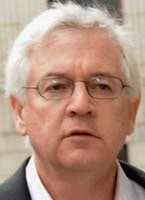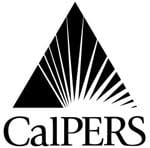April 30: This post has been corrected.

The corruption scandal at New York Stateâs public pension fund has now tainted multimillion-dollar investment deals in at least two other states â California and New Mexico. Pension systems are reacting with changes meant to cast sunlight on a shadowy system, particularly on the role of investment middlemen called “placement agents.”
The agents work for a variety of investment management firms, large and small, that seek to manage a slice of the assets held by big pension funds. The agentsâ fees can run into the millions of dollars and are usually not disclosed.
As part of ProPublicaâs occasional series of decoders, here are answers to some basic questions about who placement agents are, what they do, and whether theyâre necessary.
Who are the players?
Pension systems âPublic retirement systems are some of the countryâs biggest investors. The top three alone have combined assets of around $400 billion. They collect money from public employees â such as teachers, firefighters and police â as well as contributions from their employers, and invest that money with the aim of being able to pay for those employeesâ retirement and other benefits.
Professional staffers at the largest funds are typically overseen by a board that signs off on investment decisions and is often composed of elected politicians or political appointees.
Investment firms âThe pension systems look to earn strong returns on their money while minimizing risk, and there are many investment-management firms that want their business. Some money-management firms emphasize traditional stocks and bonds, while others concentrate in real estate. Some are hedge funds, meaning they embrace a wide number of investment opportunities, including short sales, which involve selling borrowed stock with the expectation that its price will decline. Some are “private-equity” firms thatraise money to buy undervalued businesses they can improve and resell at a profit.
Private equity boomed in the last 10 years, and many public pension funds pumped billions of dollars into these unregulated, opaque firms. The advantage to the pension funds was threefold: They liked being able to put money in investments that, supposedly, werenât vulnerable to volatility in the stock market. The funds also liked the high returns many of these firms delivered â though performance has been affected by the global financial crisis. Finally, many public pension funds set aside money to invest in start-ups and investment-management firms owned by women and minorities.
Placement agents âPlacement agents are the middlemen between the pension systems and the investment firms. Placement agents help investment firms pitch projects in return for large fees. Many placement agents are small boutique shops, but major investment firms and banking conglomerates also provide placement services.
What happened in New York?
New York Attorney General Andrew Cuomo alleges in an indictment that Hank Morris, a longtime political consultant, set up a pay-to-play scheme at New York stateâs pension fund, which has assets worth $122 billion, according to the most recent data.
 Morris was an adviser to former state Comptroller Alan Hevesi. In New York, the comptroller has nearly unfettered control over investment decisions at the fund.
Morris was an adviser to former state Comptroller Alan Hevesi. In New York, the comptroller has nearly unfettered control over investment decisions at the fund.
Morris set up shop as a placement agent, working with a Connecticut firm, Searle & Co. In that role, he essentially was able to charge a commission for bringing clients to Hevesi. For details, see our Scandal Watch coverage.
What does a placement agent normally do?
Placement agents help investment firms target funds that are likely to be interested in financial products the firm is offering, set up meetings with key decision makers and help craft marketing materials to sell the project.
Many large financial institutions offer placement services. Morgan Stanley, for example, calls its service “Capital Introductions” and says it provides “strategic positioning” and “support throughout the process” of pitching a deal. The company boasts of “long-standing relationships” with hundreds of large investors, including pension funds.
How much do placement agents earn?
Typically, fees are between 1 percent and 2 percent of the total value of the investment. So if a client wins a $100 million commitment from a fund, the placement agent can pocket between $1 million and $2 million in fees, which are often undisclosed.
Are placement agents really necessary?
Many people have asked why good investment firms would ever need a placement agent. After all, shouldnât professional pension fund staffers be able to size up potential investments themselves? What does a placement agent add?
Chris Ailman, the chief investment officer at one of the largest pension funds â the California State Teachersâ Retirement System (CalSTRS) â said placement agents can be helpful to smaller firms that donât have a marketing staff or the time to spend promoting deals on the road.
“For the smaller guys, the head guy is the one who is going to have to do the pitch,” Ailman said. “When you turn to them and say, âWell, youâve got to go to Salem or Jefferson City,” theyâll look at you saying, âWhat? Those arenât even major airports.â ”
Ailman said the placement agents can be useful by steering investment opportunities to funds most likely to be interested: “Instead of getting 40 pitches from people where thereâs no interest, you just get the projects that are likely to work.”
So, whatâs the problem with placement agents?
The industry has suffered a series of corruption scandals. Experts cite two key factors: lack of transparency and the role of campaign contributions.
Because placement agents are not hired directly by the pension funds, there has been limited disclosure of who is involved, fees they charge and what is done to earn them.

In 2006, CalSTRS, widely viewed as a model of transparency, began requiring investment firms to disclose the names of placement agents and fees they were paid. The information must be submitted before the system considers a proposed investment.
This week, after reports that it did business with Morris and another firm named in the New York indictment, the California Public Employees Retirement System said it will draft new disclosure rules. CalPERS is the nationâs biggest public pension system.
What about political contributions?
Critics say there is a widespread problem with investment managers and placement agents giving campaign contributions to politicians who can make or influence decisions about who gets investments.
“They would do far more to sanitize this business and protect the pension systems if they agreed to ban political contributions from anyone seeking to do business with the state,” said Arthur Levitt, former chairman of the Securities and Exchange Commission.
Morris is accused of telling investment managers who wanted New York State business to make contributions to Hevesiâs campaign fund.
Some funds, including CalPERS, have moved to limit contributions but have been thwarted by constitutional protections that equate contributions with free speech.
Should placement agents be banned?
New Yorkâs state and city comptrollers have said they will ban the use of placement agents, but Ailman says a ban isnât required to clean up the system and could have unintended consequences for small and minority- and women-owned firms.
“If you eliminate this role itâs going to work to the disservice of those people,” he said. “What I think this calls for is transparency.”
How are New York, California and New Mexico connected?
Several of the players named in the New York indictment have done business in California and New Mexico. ProPublica reported that Wetherly Capital Management â a Los Angeles placement firm â split fees in New York and California with Morris.
Two New Mexico funds have suspended their relationships with another fund manager, Aldus Equity, after it was cited in the Morris indictment.










